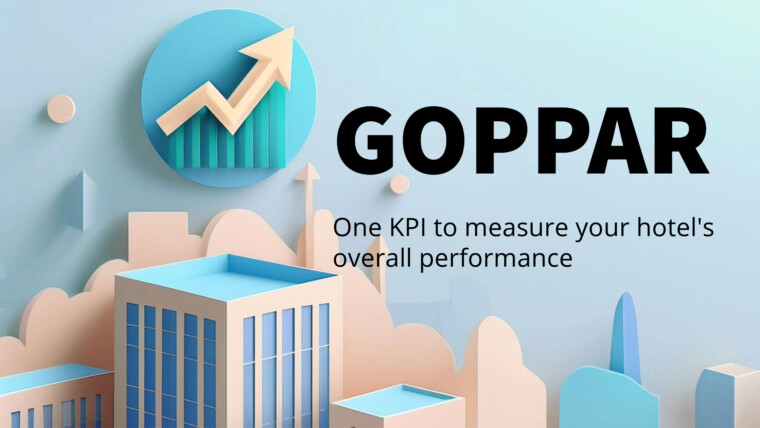Table of Contents
In the world of hospitality business, understanding the purpose of revenue management is crucial for achieving profitability and success. While it may seem logical for managers to split their time equally between generating revenue and controlling expenses, successful revenue management takes a different, customer-centric approach.
The primary purpose of revenue management is not to cleverly increase prices to unsuspecting customers in order to maximize short-term profits. Instead, the main goal of revenue management is to provide value to customers, and in doing so, increase their wealth, loyalty, and repeat visits. By effectively serving customer needs, businesses will naturally prosper, achieving high levels of operating profits and attractive returns on investment for their owners.
This customer-centric philosophy, which is at the core of the purpose of revenue management, has been embraced by industry leaders such as Henry Ford, who famously said, “A business absolutely devoted to service will have only one worry about profits. They will be embarrassingly large.” Similarly, Ray Kroc, the founder of McDonald’s, emphasized the importance of putting the customer first: “If you work just for money, you’ll never make it; but if you love what you’re doing and you always put the customer first, success will be yours.”
Professional revenue management aims to significantly increase company profits and owners’ return on investment through advanced revenue management and strategic pricing techniques. However, these techniques must always be driven by customer needs, not company needs. To fulfill the purpose of revenue management effectively, you must become a customer-centric manager of revenues, employing pricing strategies that result in charging prices that informed customers will willingly pay for the right products, in the right quantities, through the right channels, and at the right times.
Aligning the Purpose of Revenue Management with Business Goals
One example of a company that has successfully implemented a customer-centric revenue management strategy is Southwest Airlines. By offering low fares, flexible booking options, and excellent customer service, Southwest has consistently achieved high levels of customer satisfaction and loyalty. This, in turn, has led to strong financial performance and sustained growth for the company, demonstrating how aligning the purpose of revenue management with business goals can lead to success.
Another example is the hotel chain Marriott International. Marriott’s revenue management team uses advanced data analytics and customer segmentation to offer personalized pricing and promotions to its guests. By tailoring its offerings to the specific needs and preferences of different customer groups, Marriott has been able to drive increased revenue and profitability while maintaining high levels of customer satisfaction.
Setting the right price is a complex process that requires revenue managers and marketers to understand their customers well and apply sophisticated pricing strategies with great skill. By focusing on providing true value to customers in every transaction, revenue managers help their businesses succeed in the long run.
To be an effective revenue manager, the following are the things you should be willing to do on an ongoing basis:
- Continuously gather and analyze customer data to better understand their needs and preferences.
- Segment your customer base and develop targeted pricing strategies for each segment.
- Monitor competitor pricing and adjust your strategies accordingly.
- Regularly review and optimize your pricing and revenue management processes.
- Foster a culture of customer-centricity throughout your organization.
By embracing a customer-centric approach to revenue management and consistently seeking to provide value to your customers, you’ll be well on your way to driving sustainable growth and success for your organization.
This article is just the beginning of an ongoing series on revenue management by Zarnik Hospitality Review. In the coming articles, we will delve deeper into the various aspects of revenue management, including advanced pricing strategies, data analytics, and customer segmentation. Stay tuned for more valuable insights and practical tips to help you excel in the dynamic world of hospitality revenue management.
Looking for the best blogs on hotel revenue management? Check out these top resources:
- IDeaS Blog (https://ideas.com/blog) – Offering expert insights, industry trends, and actionable advice from a leading revenue management solutions provider.
- Xotels Blog (https://www.xotels.com/en/category/blog/revenue-management) – Featuring in-depth articles and how-to guides on pricing strategies, distribution channels, and market segmentation from a renowned hospitality consulting firm.
- HotelPartner Blog (https://hotelpartner.com/revenue-management-blog/?noredirect=en) – Providing practical tips and strategies for hotel professionals looking to improve their revenue management skills, from a leading hotel management software provider.
- Revfine Blog (https://www.revfine.com/category/hotel-blog/revenue-management/) – Offering data-driven insights and practical advice on pricing strategies, demand forecasting, and competitor analysis from a company specializing in hotel marketing and revenue management tools.
Whether you’re a seasoned professional or just starting out, these blogs are invaluable resources for staying up-to-date on the latest trends and techniques in hotel revenue management.








Essential Diversey Chemicals: A Guide for R1 to R9 TASKI Series
How to Respond to Guest Reviews with 10 Samples
Different Types of Paper Napkins for Restaurants
Top OTAs in India: Complete 2024 Guide for Hoteliers
Guest Reviews: The Hidden Force Behind Bookings